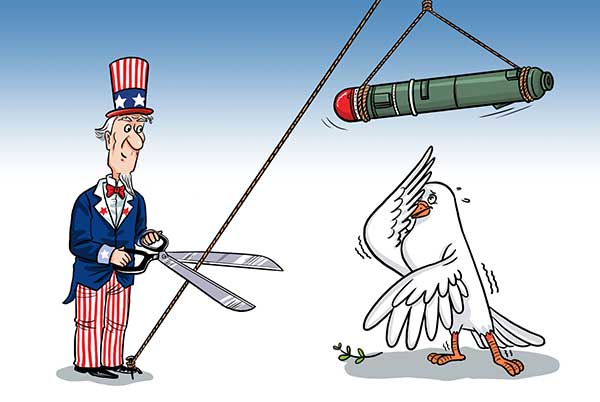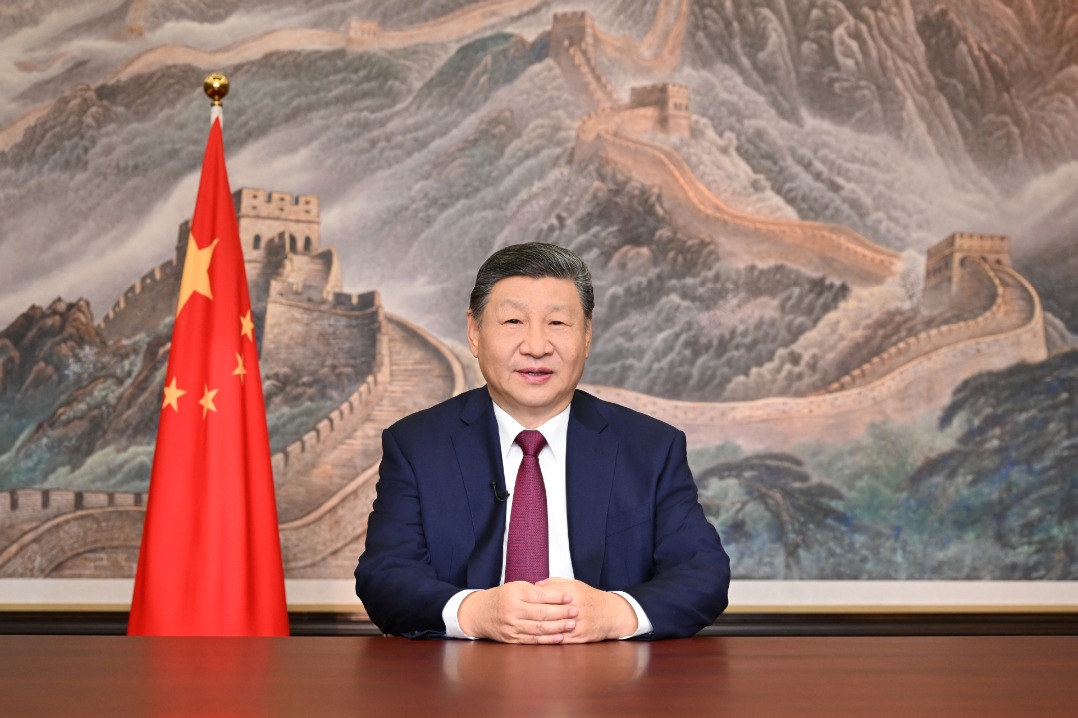US quitting INF Treaty a threat to peace


Editor's note: Russia hopes to restore full-fledged negotiations with the United States in order to save the Intermediate-Range Nuclear Forces Treaty, Russian President Vladimir Putin said on Sunday. But why does the US plan to withdraw from the INF Treaty, and what does the future hold for the treaty? Two experts share their views on the issue with China Daily's Pan Yixuan. Excerpts follow:
US seeks new order beyond missile treaty
It is too early to predict the future of the INF Treaty because it is not clear how many strategic restrictions Russia and the US are ready to accept. But if Washington does pull out of the treaty, all countries, except the US, will face a great security threat.
The treaty has played a significant role in arms control and the regional security of Europe and the Asia-Pacific, by banning ground-launched cruise and ballistic missiles between the range of 500 and 5,500 kilometers. And since the US antimissile systems deployed in European countries pose a threat to Russia, it will try its best to save the treaty.
However, the INF Treaty is not so important for the US, for it only restricts intermediate ground-launched missiles-and both Russia and the US can easily make and use air-and-sea-launched missiles. Besides, the US has allies in different regions that can deploy its missile systems.
So why has the US decided to withdraw from the INF Treaty? The Donald Trump administration's lack of interest in existing global and multilateral mechanisms may be the answer.
Ever since becoming US president, Trump has been reducing the US' international role and signing new agreements that benefit the US much more than the existing ones. For instance, the US imposed stiff tariffs on imports from even its allies, which forced economies such as Mexico and Canada to renegotiate their trade deals with the US.
The Trump administration sees the INF Treaty, too, as being unfair to the US so it wants to pull out of it. Yet it is not clear whether the two countries will start another arms race or negotiate a new deal.
And without more valid evidence, no one should reach a conclusion on the ongoing the INF Treaty drama between Washington and Moscow.
Fan Jishe, a researcher at the Institute of American Studies, Chinese Academy of Social Sciences


































